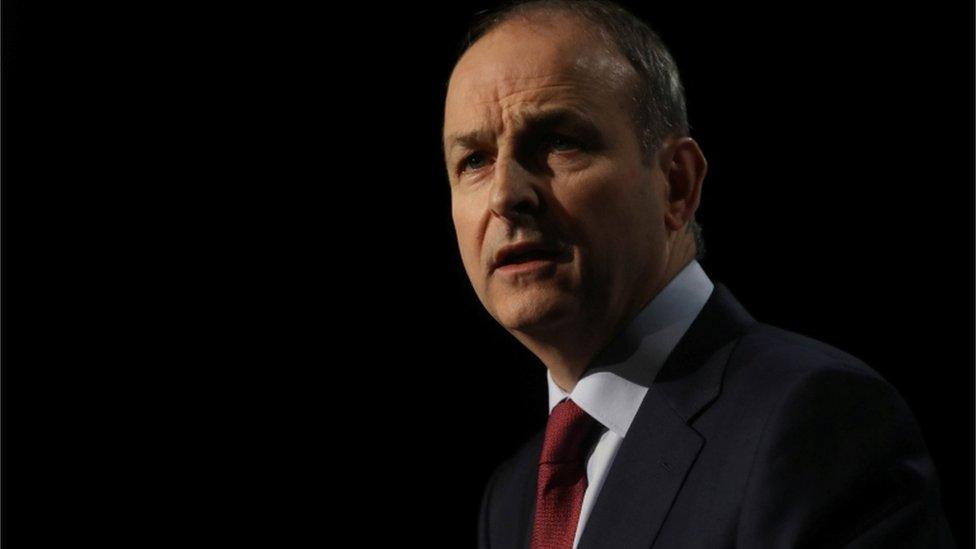Irish mother and baby homes commission to be dissolved
- Published
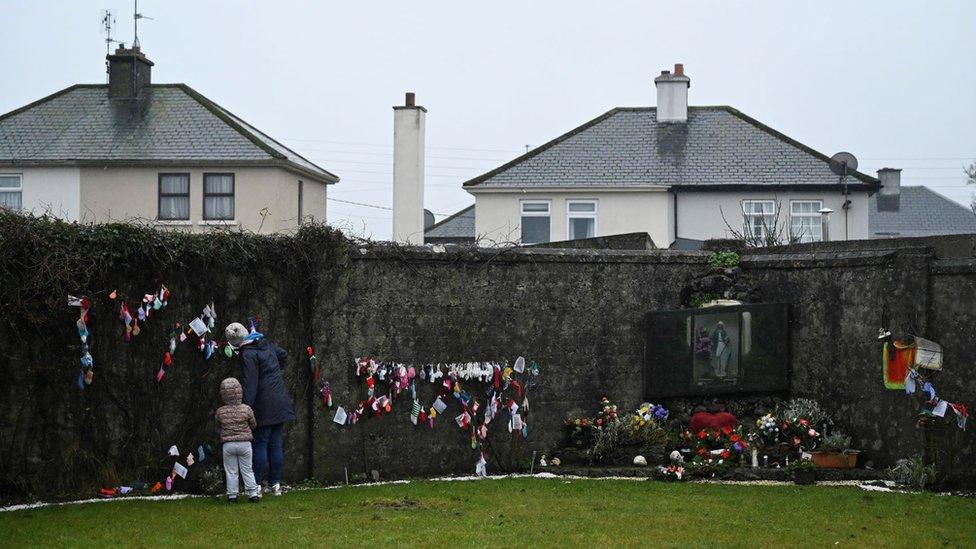
The commission was set up after controversy over baby burials at one home in Tuam, County Galway
The commission of investigation into Ireland's mother and baby homes will be dissolved by law on Sunday night, in spite of calls to extend its lifespan.
It has faced criticism since its final report was published in January, with many survivors disputing its findings.
There was also controversy over its decision to delete audio recordings of former residents' personal testimonies.
Back-up copies were later discovered, but campaigners wanted an extension so the deletions could be investigated.
Ireland's Children's Minister, Roderic O'Gorman, whose department will now take charge of the commission's archives, has repeatedly declined calls to extend Sunday's dissolution deadline.
He told the Dáil (Irish Parliament) last week it was "not clear what practical purpose can be achieved" by extending the commission's term, now that the deleted testimonies have been recovered.
However, some opposition politicians expressed concerns that abolishing the commission may make it difficult for survivors to mount a legal challenge against the findings of its final report.

Report's findings and reaction
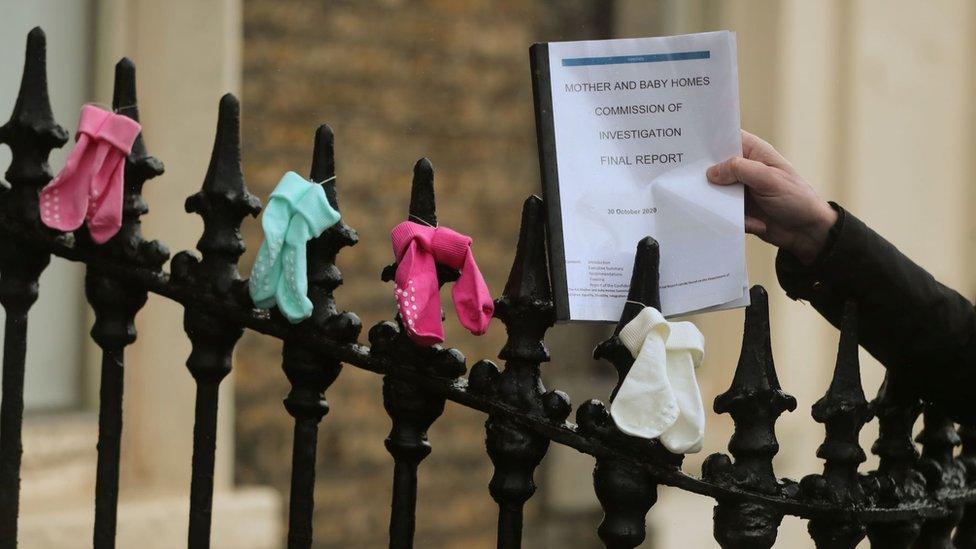
The report led to protests after its publication last month
The Mother and Baby Homes Commission of Investigation was set up six years ago to document what happened to the thousands of women and children who lived in the homes between 1922 and 1998.
The commission's final report, which runs to 2,865 pages, external, was published on 12 January and highlighted an "appalling level of infant mortality" in the institutions.
About 9,000 children died in the 18 institutions it examined as a sample selection. Overcrowding, poor sanitation and lack of infection control were listed among contributing factors.
But many survivors were disappointed and angered by the final report, which concluded: "There is no evidence that women were forced to enter mother and baby homes by the church or state authorities."
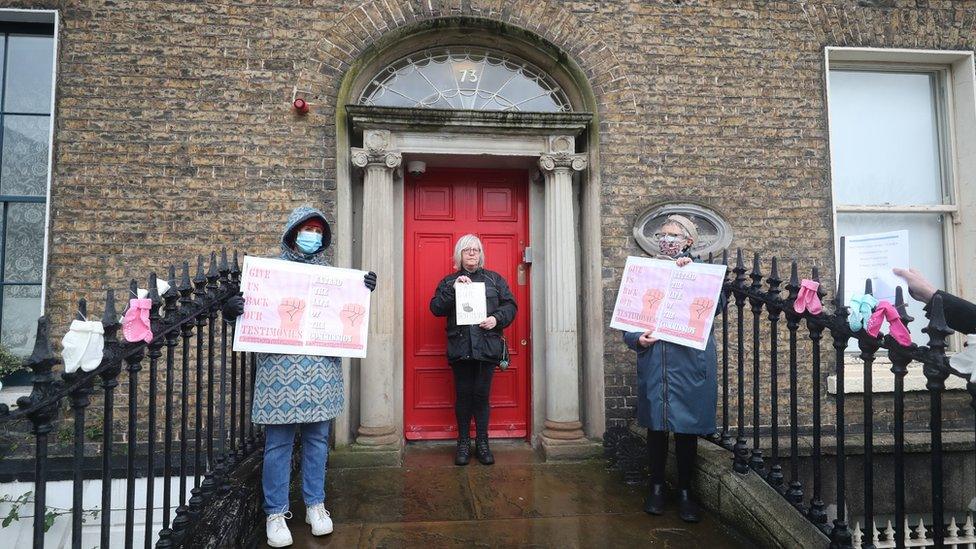
Protesters have held demonstrations outside the commission's Dublin headquarters
The report acknowledged unmarried mothers had little choice about entering the homes, but it focused blame on their families and the fathers of their children for abandoning them, leaving them destitute.
The commission also found "very little evidence that children were forcibly taken from their mothers".
Those conclusions bewildered survivors, several of whom told the commission they were victims of rape, incest, and sometimes clerical sex abuse, and were sent into the homes by priests or doctors.
One former resident told the inquiry when she tried to leave the home, her baby was separated from her and she was "locked into a room, from where she could hear her child was being given to a couple".
In her evidence to the commission she said she "hadn't consented in any way" to her son's adoption.
Other witnesses said they were pressurised into signing adoption papers - a woman who gave birth in the Bessborough home in Cork told the inquiry: "I was railroaded into signing these documents."

Survivors' objections were raised in the Dáil on Wednesday, external, when the Social Democrats brought a motion calling for the commission to be extended by a year to address the concerns.
Jennifer Whitmore, from the party, warned the report could become the state's official "history" of mother and baby homes, despite protests from people who lived in the institutions.
She argued that by not extending the commission or allowing survivors to challenge the report's narrative, the minister was "allowing the rewriting of history".
'Miraculously recoverable'
In total, 549 people testified to the inquiry's Confidential Committee, external - a non-adversarial module of the inquiry designed to allow those with "lived experience" of the homes to recount their memories.
It was these audio recordings that were deleted and later recovered on the back-up tapes.
The inquiry's final report stated these witnesses were informed the recordings would be used as an "aide memoire" for researchers, after which they would be destroyed.
But some witnesses contend they were not told about the planned deletions and want access to their personal testimonies in order to challenge the inquiry's interpretation of their evidence.
"While it is a massive relief to discover that the deleted testimonies now - miraculously - seem to be recoverable, we are left with more questions than answers," said Social Democrat Holly Cairns.
Speaking in Wednesday's debate, she asked: "If the commission is dissolved at the end of this week, who will be left to answer those questions?"
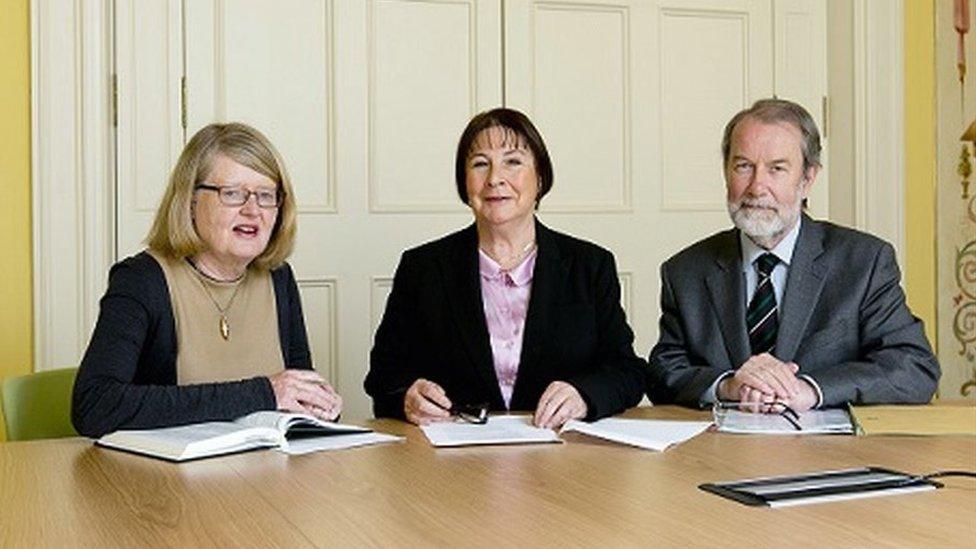
The commission's chair is judge Yvonne Murphy (centre) who led investigations into clerical child abuse
The children's minister told the Dáil he is focused on helping survivors access their records but believed the commission had "acted in good faith" to protect witnesses' privacy.
"The commission has said that each witness at the confidential committee was given a guarantee of complete anonymity, and it was for this reason that tapes were deleted," Mr O'Gorman said.
He added that since the report was published, more survivors have spoken out and he is considering enabling witnesses to "submit their stories afresh" to a planned national memorial and records centre.
The non-adversarial nature of the Confidential Committee meant witnesses were not challenged when they made allegations, and Data Protection Commissioner Helen Dixon has warned there could be issues regarding the rights of third parties who were accused of wrongdoing in the audio recordings.
Ms Dixon told broadcaster RTÉ there are "high risks" for the Department of Children, external as it takes control of the inquiry's archives.
Sunday's dissolution deadline was written into law last year and the Department of Children has confirmed the Mother and Baby Homes Commission of Investigation will dissolve at midnight.
BBC News NI asked the commission if it wished to respond to the recent criticism ahead of its dissolution, but no reply was received.
Related topics
- Published20 February 2021
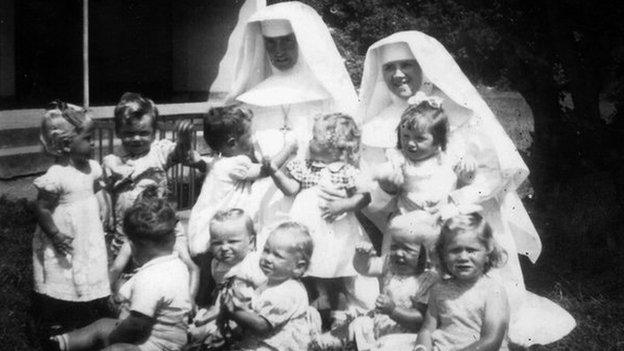
- Published16 February 2021
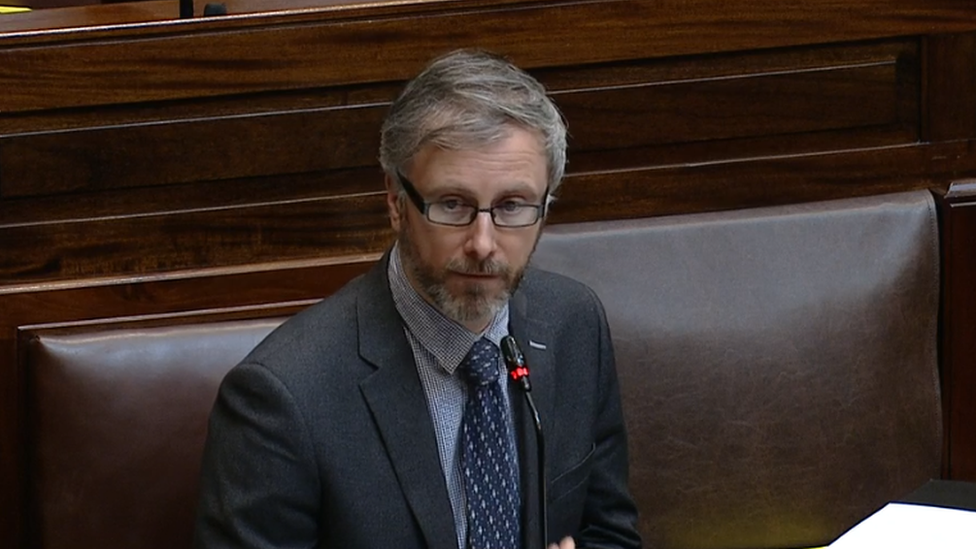
- Published13 January 2021
